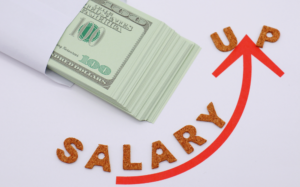When it comes to medical check-ups, many people must have realized the importance of checking their body’s health regularly. But what about financial health? Have you ever done a financial check-up?
Yup, finances also need to be checked regularly. You see, money problems are not always visible on the surface, but the effects can be felt in your daily life – like stress, not being able to save, or even getting into debt.
So, instead of being late, let’s recognize 5 signs that you need a financial check-up right now!
What is Financial Check-Up
Financial check-up is a process of evaluating your overall financial condition-from income, expenses, debt, savings, investments, to financial goals. The goal? So that you know whether your finances are in good health, need improvement, or are even in danger.
Like a medical check-up for your body, regular financial check-ups help you detect financial “diseases” early on. For example, whether you are too wasteful, in debt, don’t have an emergency fund, or even investing carelessly.
By routinely checking your finances, you can make wiser and more targeted decisions in managing your money. So, financial check-up is a kind of personal “financial report card” that can be a guide to achieve financial stability and freedom. It’s a must, right?
Signs You Need a Financial Check-Up
1. Salary Runs Out Quickly
If every payday just passes by and you’re confused about where your money goes, that’s an early alarm that you need a financial check-up. This condition could be due to uncontrolled spending, not making a budget, or impulse shopping too often.
By checking your finances regularly, you can start recording expenses, recognize wallet leaks, and re-strategize your finances. Not only does it make you more frugal, but also more aware in managing your income.
2. No Emergency Fund
Emergency funds are an important element in a healthy financial outcome. If you don’t have one, or the funds are not enough to cover 3-6 months of living expenses, it means that your financial condition is still vulnerable.
Financial check-up will help you re-prioritize your finances, including a strategy to set aside emergency funds gradually without disturbing your daily needs. Because we never know when the unexpected will come, it’s better to be prepared in advance, right?
3. More Installments, Debt Ratio Exceeds 30% of Income
One of the important indicators in a financial check-up is the debt-to-income ratio. If it is more than 30%, it means that you have started to “suffocate” financially.
That way, you can identify which installments need to be resolved first, and assess your ability to pay so that you don’t get stuck in debt. This is an important step so that you can get out of the “vicious circle” of endless installments.
4. Don’t Have Clear Financial Goals
Good financial results should show you have direction and targets in managing money. But if you are living from one payday to the next without knowing what you are aiming for, it means you need an evaluation.
Financial check-up can help you set short-term (like a vacation or buying gadgets), medium-term (down payment for a house), and long-term (retirement or education fund) financial goals. Life becomes more focused and motivated!
5. Have Not Started Investing, or Investing Without Purpose
If the results of your financial check-up are still zero in the investment section, or it turns out that you are just investing without knowing the risks, it is a sign that you need to improve your strategy.
Financial check-up will help you recognize your risk profile, evaluate your investment goals, and choose the right product. Not everyone is suitable for stocks or crypto, the important thing is that it fits your financial condition and plan.
It’s time to check your wallet, not just your blood pressure!
Friends, financial check-ups are not just for rich people or those who are already “established”. In fact, the earlier you start evaluating your finances, the greater your chances of living a calmer and stress-free life.
Let’s love yourself and your future not only through self-care, but also through healthy and routine financial care. Because a healthy wallet = a more enjoyable life!
Now my friend, after doing a financial check-up and starting to be more aware of the importance of taking care of financial health, there is nothing wrong with starting to move to the next stage: digital gold investment. Gold is a stable asset, inflation-proof, and suitable for beginners and experienced investors alike.
Let’s start investing in digital gold now with Treasury! It’s practical, safe, can be started from a small amount, and certainly makes your financial plan more prepared for the future.











